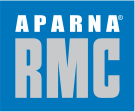Concreting in cold weather conditions: Challenges & Solutions

January 1, 2024
Temperature plays a crucial role in ready-mix concrete strength development. Concreting in cold weather introduces unique challenges that significantly differ from standard construction practices. Ready-mix concrete does not set fast in low temperatures due to the disruption of cement hydration. These conditions can result in surface defects, reduced concrete performance, and an increased likelihood of thermal cracking.
Here are a few important factors to keep in mind when working with your Ready Mix Concrete supplier during the winter season or in colder regions
Know the right setting temperatures of RMC
Setting Time of RMC at Various Temperature can vary significantly based on the temperature and humidity levels prevailing in the construction site. Here is a helpful guide to understand setting times at different temperatures:
| Temperature | Approximate Setting Time (hours) |
| 38oC | 1-2/3 |
| 32oC | 2-2/3 |
| 27oC | 4 |
| 21oC | 6 |
| 16oC | 8 |
| 10oC | 11 |
| 4oC | 14 |
| -1oC | 19 |
| -7oC | Set will not occur |
Admixtures and Accelerators to increase the setting time
Admixtures, and chemical compounds added to the ready-mix concrete can help speed up the concrete setting times.
Air-entraining additives improve freeze-thaw resistance by introducing microscopic air bubbles while water-reducing admixtures maintain the crucial water-cement ratio for concrete strength. Strategically using these admixtures ensures structural integrity in chilly environments.
Accelerators, such as calcium chloride or non-chloride compounds, can promote rapid cement hydration, especially in cold weather conditions. Many of these accelerators work at temperatures lower than 4oC, making it an ideal mixture for high-altitude winter season construction
Cold Weather & RMC Mix Considerations
In cold weather, creating an effective concrete mix is crucial for optimal workability, strength, and durability. This includes precise design considerations, such as the right amount of cement, suitable admixtures, and controlled aggregate proportions.
To expedite setting and improve strength, it’s essential to maintain a lower water-cement ratio. Additionally, selecting aggregates with low absorption rates is vital for preserving the desired workability. A well-thought-out mix design that takes these factors into account is fundamental for overcoming challenges posed by cold weather, ensuring the ready-mix concrete meets the required standards for durability and structural integrity.
Insulation Techniques
Sub-zero temperatures may require insulating for freshly poured ready-mix concrete in cold weather. Insulated blankets, thermal quilts, and active heating systems such as electric blankets can help retain moisture for longer periods, retaining heat during hydration and ensuring proper curing.
In windy areas, additional windbreak mechanisms may be needed to minimize the risk of surface defects of concrete pour.
Get expert advice from the RMC leaders
Aparna RMC, an industry leader in Ready Mix Concrete (RMC) solutions, operates across 27 strategically located facilities across four states in India. With a team of experts specializing in ready-mix concrete solutions, the team at Aparna RMC can offer unparalleled expertise to ensure the success of your construction projects. If you are constructing in challenging environments or weather conditions, the team will be able to share their experiences offer expert advice and truly work with you as a reliable partner.
